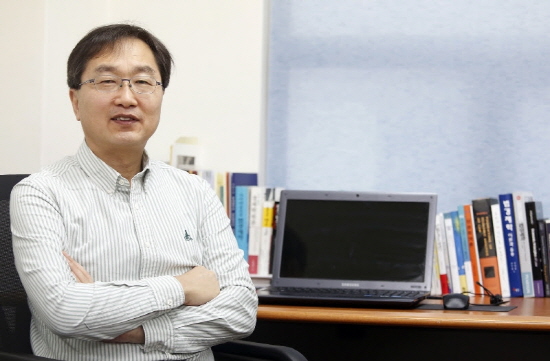Believe it or not, you are a member of the nobility in the world
| 한국 사회의 갈등에 대해서 말을 하다 보면 노블레스 오블리주가 언급된다. 가진 자들이 돈을 내야 한다는 것이다. 그런데 가진 자의 범위에 자기를 포함시키는 사람은 거의 본적이 없다는 것이 필자의 지적이다. 이미 부자들은 매우 많은 돈을 세금으로 내고 있다. 개인소득세의 경우 상위 10% 소득자가 전체 세수의 68%, 상위 20%가 84%를 내고 있다. 하위 40%는 근로소득세를 한 푼도 내지 않는다. 필자는 “돈에 대한 상대적 박탈감에 있어서, 증오는 증오하는 사람들의 문제이지 증오를 당하는 사람들의 문제가 아니다”라고 생각한다. 아래 글은 김정호 프리덤팩토리 대표의 영문 프리덤보이스*이다. |
Whenever people speak of financial or economic issues that pertain to Korea, it is only a matter of time before the majority of people conclude that the solution for Korea's problems is “noblesse oblige.” Nowadays, the term basically comes down to mean that the rich ought to give more. That way, the envy of the “99%” will be satiated.
However, of all those people who champion “noblesse oblige,” I have never personally met anyone who includes himself among the “nobility.” The same applies to the people I see in my daily life. For example, if you are a university professor or a business manager, whether you know it or not, you are a member of the nobility. In fact, judging by income alone, you would be a member of the top 20 percent of income-earners in the country. Therefore, you have enough of your own money to give to charity; as long as you put your mind to it.
Despite that, however, when these people bring up “noblesse oblige,” they almost always mean someone who is wealtier than they are. I am sure that those wealthy individuals that the professors and business managers point to will in turn point to others who are even wealthier than they are.
Personally, I do not think for a moment that this sentiment will change if the wealthy actually did pay more. That is because I very much doubt that people's irrational desire to eat the rich will ever be satiated.
If we think about it, the wealthy already pay a significant amount of taxes. If we look at individual income taxes, the top 10 percent of income earners pay up to 68.1% of all income taxes. The top 20 percent pay up to 84.4%. On the other hand, the bottom 40 percent of income earners do not pay any individual income taxes at all.
Couldn't it be argued then that the upper class is already paying more than their “fair share?”
However, despite this reality, I have never met a single person who champions “noblesse oblige” who has expresses gratitude to the rich. In fact, I think it is highly probable that even if the upper class paid for 90% of all income taxes, people would ignore that fact also and demand that they pay even more.
I have always thought that in most cases, the problem lies with those who hate; rather than with the people who are hated. I think it goes doubly so for the rich who are hated despite the fact that they have done nothing to harm others.
When it comes to giving to charity, I cannot help but think of Jewish people. Among the top six Americans who had given the most to charity in 2010, five of them were Jewish. George Soros came in at first place with a sum of up to US$3.3 billion (\350 billion). Michael Bloomberg came in at second place with a sum of up to US$2.8 billion (\300 billion).
Did you know that, regardless of whether they come from a rich or poor family, charity is something that Jewish children are taught from a young age? Jewish households have a savings jar known as a “tzedakah,” which is money that is saved in order to do one's “religious obligation to do what is right and just.” I was told that people put as much or as little money into this savings jar as they wish whenever they sit down to have a meal.
| |
 |
|
| ▲ 국내를 비롯 글로벌 자유주의 인사들에게 널리 알려지고 있는 자유주의 민간싱크탱크 프리덤팩토리의 김정호 대표. 프리덤팩토리는 시민주주 731명이 투자하여 설립된 주식회사형 민간싱크탱크로서 입법청원운동, 소비자주권운동, 자유통일운동 등에 주력하고 있다. |
Charity is not merely an obligation for the “nobility” but something that anyone and everyone should do. The only difference is that the rich give more to charity than the poor.
If we wish to live in a charitable society, we, too, have to change the way we think. Only if everyone, rich or poor, learns from a young age to make a habit of giving to charity will people continue to give to charity after they have gotten wealthy. I very much doubt that an individual who has never given to charity his entire life will somehow manage to become charitable just because he has gotten rich one day.
If your annual salary is \50 million, that makes you more privileged than your neighbor who earns \40 million. If your total annual earnings is only \20 million, you are more privileged than a typical middle-class household in the Philippines. And even if you are a pensioner who receives the minimum payment of \1.5 million per month from the government, you are more privileged than a typical middle-class household in Ethiopia.
Believe it or not, you are a member of the nobility. So remember that when someone demands for greater “noblesse oblige,” they usually mean for you to pay more.
Freedom Factory CEO
Chung-ho Kim
| * English & Korean Version : http://www.freedomfactory.co.kr/ |